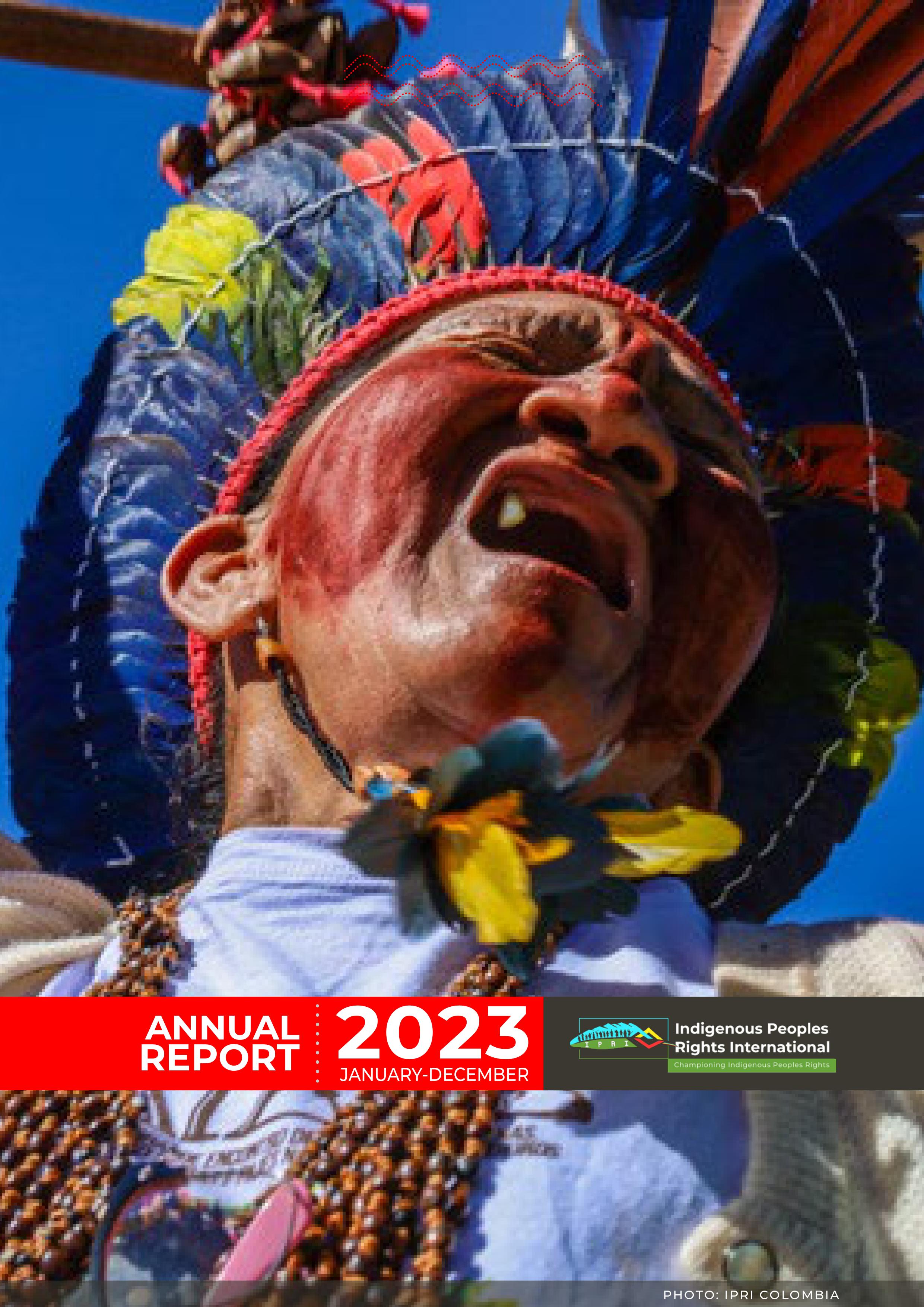2023 was a year marked by consolidation and growth for IPRI, building upon the lessons gleaned from our initial years to embark on the implementation of our 5-Year Strategic Plan.
Throughout the year, we responded to numerous collaboration requests spanning advocacy, communication campaigns, and legal and sanctuary support, alongside indigenous organizations working within territories, culminating in our participation in key global processes and bodies, e.g, UN Committee Against Torture, the Human Rights Committee, the Committee on Economic, Social and Cultural Rights, the UN Permanent Forum on Indigenous Issues (UNPFII), the Expert Mechanism on the Rights of Indigenous Peoples (EMRIP), the UN Climate Change Conference (COP 28), the Business and Human Rights (BHR) Forum), and engagements with Special Rapporteurs.
In these spaces, we highlighted the challenges and perils we as indigenous peoples face in the defense of our lands, territories, and ways of life, actively contributing to the development of international guidelines that advocate for the respect of our rights, notably influencing the OECD Guidelines for Multinational Enterprises on Responsible Business Conduct.
Amidst the climate crisis and the green transition - central issues in the protection of our territories and the biodiversity we safeguard-, we reiterated in forums and campaigns that a just transition is one that unequivocally upholds indigenous peoples’ rights and prevents and addresses criminalization and violation of our individual and collective rights.
Furthermore, 2023 witnessed our concerted efforts to nurture solidarity among
indigenous women in political spheres and movements across territories, in particular, through our support of the September Indigenous Women’s March in Brazil.
We also grappled with multifaceted challenges, particularly the perilous and evolving contexts in our six focus countries. While notable indigenous women secured significant political positions in states like Brazil and Colombia, the looming threats posed by armed actors and extractive industries persistently endanger the existence of our peoples. Internally, our foremost challenge lies in looking for indigenous peoples possessing the requisite expertise to fill critical positions.
As we reflect on the accomplishments and challenges of 2023, we are imbued with renewed hope and unwavering conviction, recognizing that it is through solidarity and diligent effort that we will continue to advance our mission in combating criminalization and impunity while safeguarding the rights of indigenous peoples worldwide.
Throughout the year, we responded to numerous collaboration requests spanning advocacy, communication campaigns, and legal and sanctuary support, alongside indigenous organizations working within territories, culminating in our participation in key global processes and bodies, e.g, UN Committee Against Torture, the Human Rights Committee, the Committee on Economic, Social and Cultural Rights, the UN Permanent Forum on Indigenous Issues (UNPFII), the Expert Mechanism on the Rights of Indigenous Peoples (EMRIP), the UN Climate Change Conference (COP 28), the Business and Human Rights (BHR) Forum), and engagements with Special Rapporteurs.
In these spaces, we highlighted the challenges and perils we as indigenous peoples face in the defense of our lands, territories, and ways of life, actively contributing to the development of international guidelines that advocate for the respect of our rights, notably influencing the OECD Guidelines for Multinational Enterprises on Responsible Business Conduct.
Amidst the climate crisis and the green transition - central issues in the protection of our territories and the biodiversity we safeguard-, we reiterated in forums and campaigns that a just transition is one that unequivocally upholds indigenous peoples’ rights and prevents and addresses criminalization and violation of our individual and collective rights.
Furthermore, 2023 witnessed our concerted efforts to nurture solidarity among
indigenous women in political spheres and movements across territories, in particular, through our support of the September Indigenous Women’s March in Brazil.
We also grappled with multifaceted challenges, particularly the perilous and evolving contexts in our six focus countries. While notable indigenous women secured significant political positions in states like Brazil and Colombia, the looming threats posed by armed actors and extractive industries persistently endanger the existence of our peoples. Internally, our foremost challenge lies in looking for indigenous peoples possessing the requisite expertise to fill critical positions.
As we reflect on the accomplishments and challenges of 2023, we are imbued with renewed hope and unwavering conviction, recognizing that it is through solidarity and diligent effort that we will continue to advance our mission in combating criminalization and impunity while safeguarding the rights of indigenous peoples worldwide.


